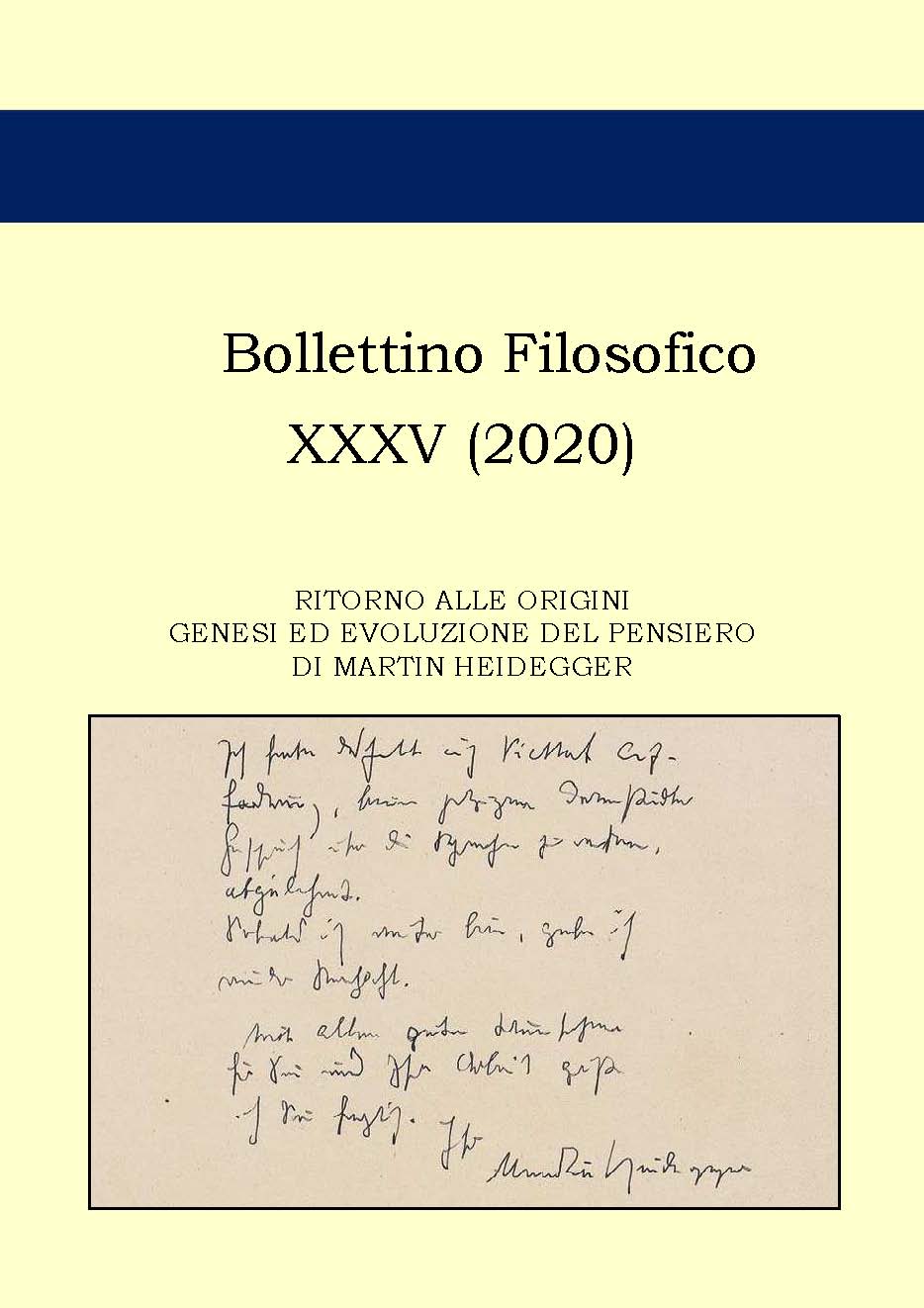The Pragmatic and Transformative Dimension of Heidegger’s Early Method of Formal Indication
DOI:
https://doi.org/10.6093/1593-7178/7440Abstract
In the present contribution, I explore the notion of formal indication in Heidegger’s early Freiburg Lectures, in order to emphasize that its pivotal meaning both as a method and an expression lies in its preparing and awaking a transformation of the reader’s experience. For this purpose, I first of all draw attention to the constitutive ambivalence between the phenomenon of factical life experience and philosophy, so as to further examine the difference between formally indicative “expressions” and “order-concepts”. Finally, I analyze the notion of formal indication in the 1921-22 Lecture “Phenomenological Interpretations of Aristotle”, so as to argue that formal indication can be conceived of as a pragmatic use of language, which works through practical negations and addresses readers. From this perspective, I claim that formal indication embodies a task to be accomplished by readers, since it points to a transformation of the reader’s experience.
Keywords: Factical Life Experience, Formal Indication, Heidegger, Pragmatics, Transformation

